Be more cautious in business planning
As Vietnam and the US are negotiating tariffs, banks have prepared plans to deal with the possibility of the US imposing new tariffs on Vietnamese goods.
Eximbank is a bank with a large market share in trade finance for import and export activities. Mr. Nguyen Canh Anh, Chairman of the Board of Directors of Eximbank shared at the General Meeting of Shareholders that: Recent developments have made the bank focus on potential and safe customer groups, based on the bank's advantages such as retail and import and export.
"Eximbank has strength in import-export loans, so we will carefully evaluate the details so as not to affect asset quality," said Mr. Nguyen Canh Anh.
According to Mr. Nguyen Thanh Tung, Chairman of the Board of Directors of Vietcombank , this bank could be significantly affected because it accounts for 20% of the market share of international payments and domestic trade finance.
However, Vietcombank has proactively worked with customers, diversified export markets and coordinated with management agencies to propose appropriate response solutions for each industry.
On May 1, a Vietnamese technical delegation visited the US and worked with relevant agencies of the country on bilateral trade negotiations. This shows that the US considers Vietnam an important, serious, and good-willed partner and genuinely acknowledges concerns.
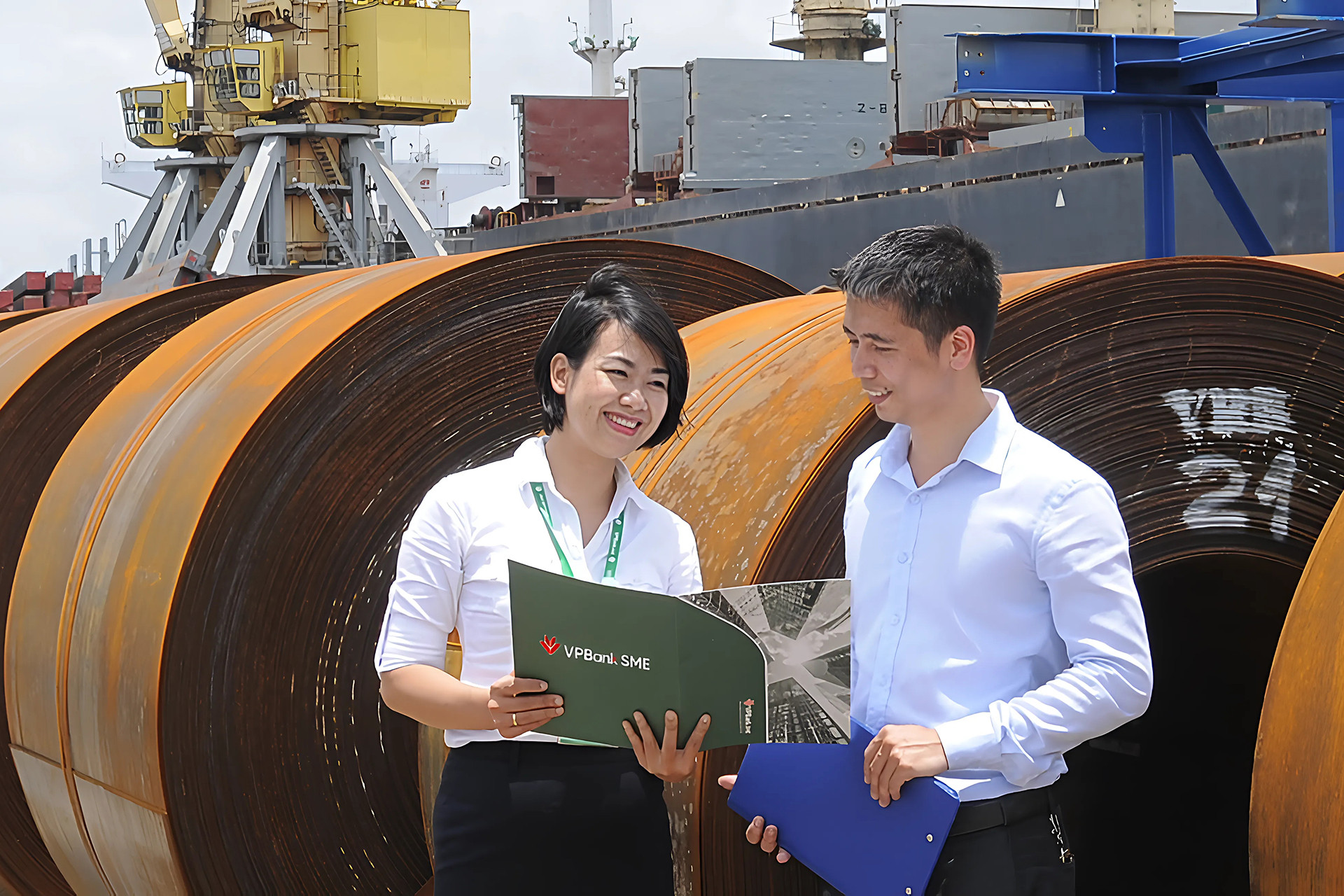
Mr. Luu Trung Thai, Chairman of the Board of Directors of MB Bank, believes that with Vietnam's proactive and flexible approach, along with advantages in labor, resources, and economic openness, Vietnam will find a way to resolve potential risks that harm the economy, thereby maintaining growth.
Meanwhile, General Director Pham Nhu Anh said that MB set a modest profit growth target of 10% this year due to lower lending interest rates. The bank's board of directors assessed that this year would have many difficulties due to the trade war between countries.
The bank will adjust its profit plan higher when conditions permit, while continuing to accompany and support businesses affected by the US's imposition of tariffs on Vietnamese goods.
Will industrial real estate businesses be affected?
At VPBank, General Director Nguyen Duc Vinh said that although he believes in good negotiation results for Vietnam, the bank's leadership predicts that tax rates will increase, affecting businesses, including FDI enterprises and traditional Vietnamese export enterprises.
Mr. Vinh shared that credit for businesses exporting goods to the US only accounts for 3%, so the impact (if any) will not be large.
In addition, VPBank is serving about 500 FDI enterprises through cooperation with strategic partner SMBC. However, the FDI outstanding debt is only over VND 10,000 billion, while the actual total loan amount is over VND 6,000 billion. Moreover, enterprises that are VPBank's customers have not been directly affected.
However, Mr. Vinh noted that caution is still needed in evaluating industrial park real estate businesses. “For the import-export sector, the majority are small and medium-sized enterprises. What we are most concerned about is people's purchasing power. If industrial parks are affected, workers' jobs will be affected, leading to a decline in purchasing power," Mr. Vinh said.
At the HDBank General Meeting of Shareholders, Mr. Pham Quoc Thanh, Acting General Director of HDBank, said that the bank has reviewed the portfolio and customers that are likely to be affected.
Accordingly, the direct impact is not large as the outstanding debt of HDBank customers exporting goods to the US market accounts for less than 1.5% of the total outstanding debt. At the same time, the bank will have a policy to support affected customers.
Mr. Tran Hong Minh, Acting General Director of KienlongBank, shared that the bank focuses on credit for customers in the Mekong Delta region, especially customers who produce and trade rice.
To respond to the new tax policy, KienlongBank changed the way it supported this customer group by focusing on green credit, thereby limiting the impact of the US tax policy.
At LPBank, Mr. Bui Thai Ha, Vice Chairman of the Board of Directors, said that LPBank has compiled statistics, evaluated, and proposed many solutions to respond to the new tariff policy.
“Only 0.3% of LPBank’s total outstanding credit is being provided to businesses that are affected by US tariff policies. Therefore, we assess that this does not affect the bank’s credit quality. Furthermore, the signals from the tariff negotiations between Vietnam and the US make us believe that there will be a good result for Vietnam,” said Mr. Bui Thai Ha.
Source: https://vietnamnet.vn/ngan-hang-len-kich-ban-ung-pho-voi-chinh-sach-thue-quan-moi-cua-my-2397093.html




![[Photo] Anh Hoang - Dinh Duc successfully defended the men's doubles championship of the National Table Tennis Championship of Nhan Dan Newspaper](https://vphoto.vietnam.vn/thumb/1200x675/vietnam/resource/IMAGE/2025/5/23/d6ab3bcac02c49928b38c729d795cac6)

![[Photo] Top players gather at the 2025 Nhan Dan Newspaper National Table Tennis Championship](https://vphoto.vietnam.vn/thumb/1200x675/vietnam/resource/IMAGE/2025/5/23/9ad5f6f4faf146b08335e5c446edb107)

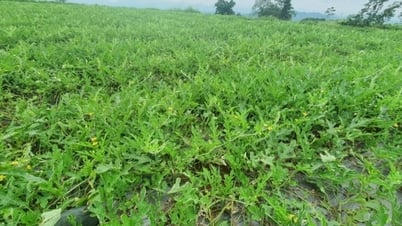

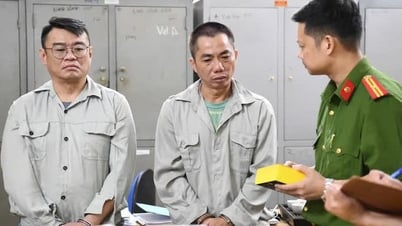

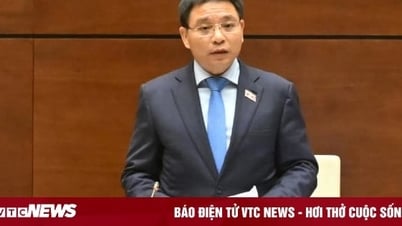

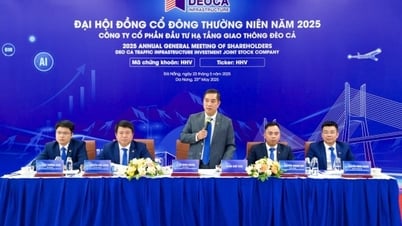
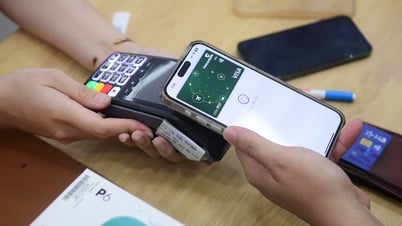
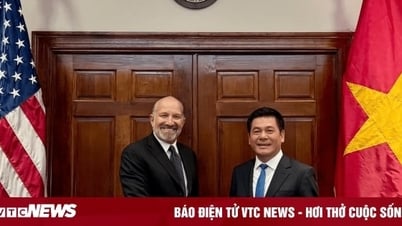





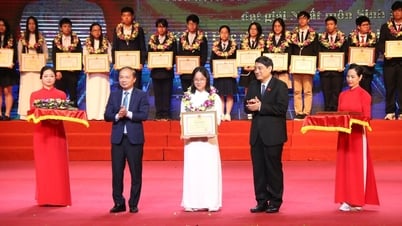
















































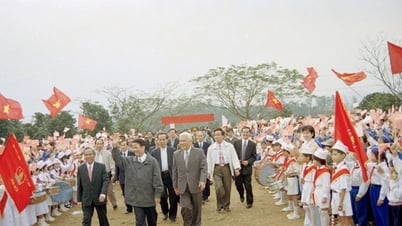



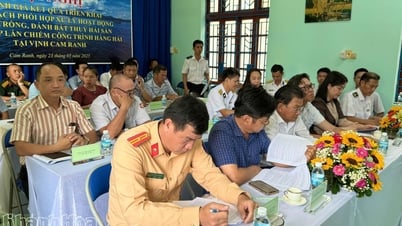

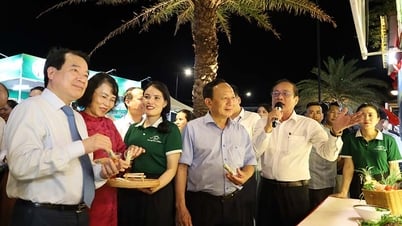

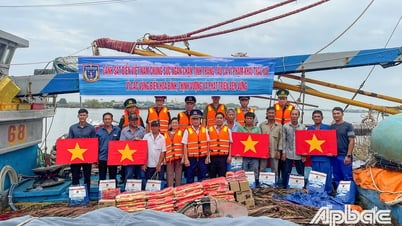














Comment (0)